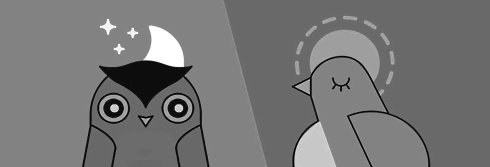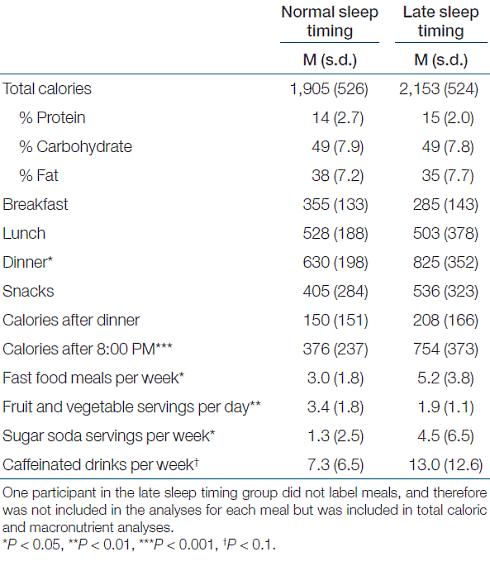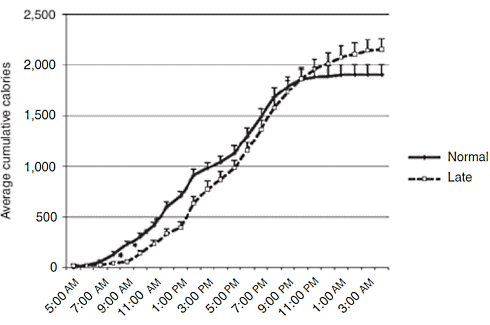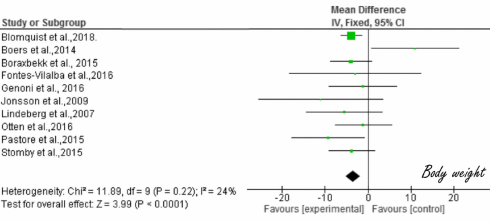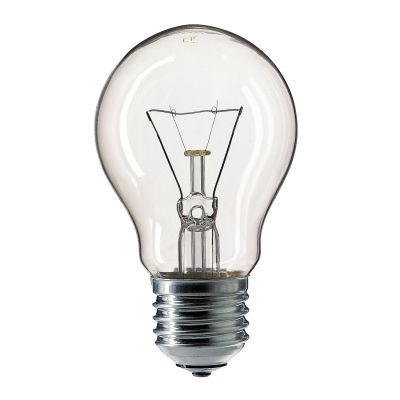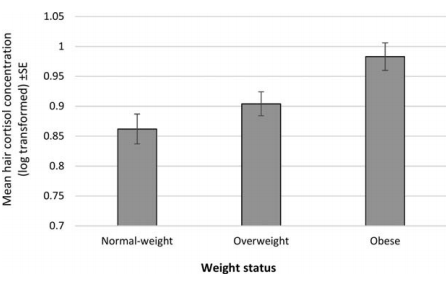|
Definition: "An ergogenic aid is any substance or phenomenon that enhances performance "
|
|
||||||||
08.01.2013 |
|
|
Night owl puts on weight faster than early bird
People who go to bed late and get up late put on weight more easily than those who are early to bed and early to rise, according to a small human study that neurologists at Northwestern University published in Obesity.
Study
They studied 52 people aged between 18 and 71 and followed the participants' daily rhythm for seven days. The researchers also got their subjects to note down what, how much and when they ate.
Results
Just under half of the participants were 'night owls', not getting to sleep until 3.45 a.m. and waking up at 10.45 a.m. The average night owl therefore got about five and a half hours of sleep every 24 hours.
The night owls ate 248 kcals more than the early birds per 24 hours, according to the table below. In addition, the night owls ate less healthily. They drank more soft drinks, ate more fast-food meals and ate less fruit and veg, so it's hardly surprising that the night owls were fatter than the early birds. The average early bird had a BMI of 23.7; the average night owl had a BMI of 26.0.
When the researchers subjected their data to statistical analysis they discovered that the shorter amount of sleep of the night owls was not the cause of the fattening effect of their lifestyle. Rather, it's night owls' habit of eating at night that seems to induce overeating.
Conclusion
The results of the study are not only relevant for people who want to lose weight, but also for people who work on night shifts, according to Zee. "It's midnight, but they're eating lunch. Their risk for obesity as well as cardiovascular, cerebrovascular and gastrointestinal disorders is higher."
Source:
More: Archives:
|
|
|||||||||||||||

